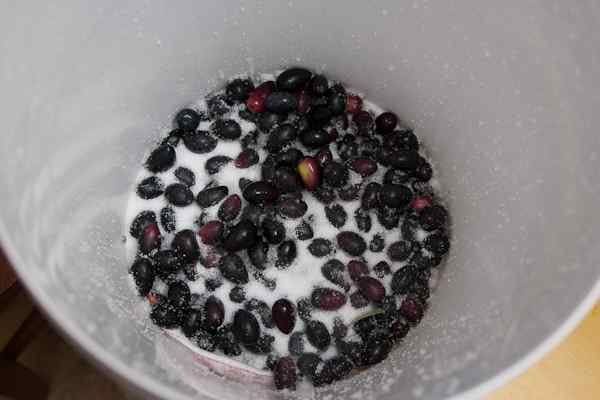Do you love olives but find them too salty?
Well, you are not the only one. Lots of people have the same complaint.
But why are olives so salty? And is there a way to reduce their saltiness?
We have the answers to both questions.
Olives are salty because they are cured and processed using a brine solution to remove their natural bitterness. And yes, you can reduce their saltiness by simply keeping them in cold water for a few hours.
For those curious readers who are eager to learn more, here are the 5 reason why olives are so salty.
5. Curing Process
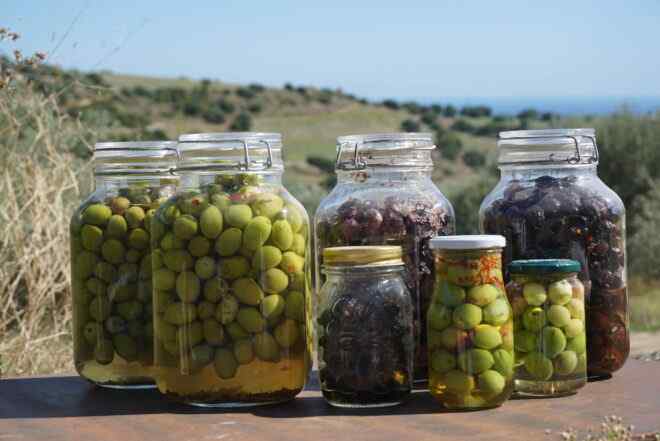
Did you know that olives are naturally bitter? The culprit behind this a compound called oleuropein. It makes up around 14% of the fruit’s total weight. This is why raw olives are excessive salty to eat.
So, in order to reduce some of its bitterness, olives have to be cured. Curing is actually a process where you soak the fruit in brine.
Now, brine is nothing but a simple mixture of salt and water. When you soap up olives in this solution, the salt will draw out the bitter compounds in the fruit. It creates a balance and makes olives tastier to eat.
But during this process, olives also absorb some of the salt from the brine. And this is how the fruit becomes salty.
Note:
Sometimes, the curing process may include only dry salt instead of brine.
4. Fermentation
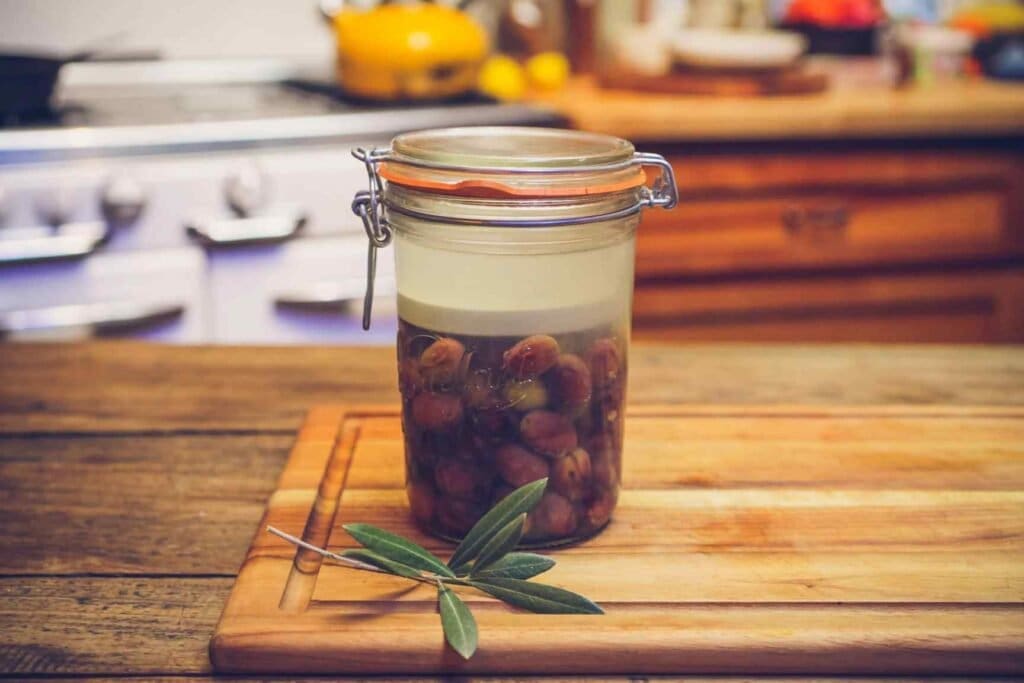
If you are into baking, you might be familiar with the fermentation process. But for those who don’t know what it is, here’s a simple explanation.
Fermentation is a natural process that occurs when bacteria or yeast break down sugars in foods.
Now, in the case of olives, fermentation occurs during the curing process.
When you keep olives in brine mixture, the bacteria breaks down the sugars in olives. In the process, they produce lactic acid. Now this acid is what preserve the olives and also gives them a tangy flavor.
Note:
Fermentation can releases the salt that olives absorb from during the curing process. So, this method is like a paradox – it is what makes olives salty but then it is also the reason why olives releases the excess salt.
3. Preservation
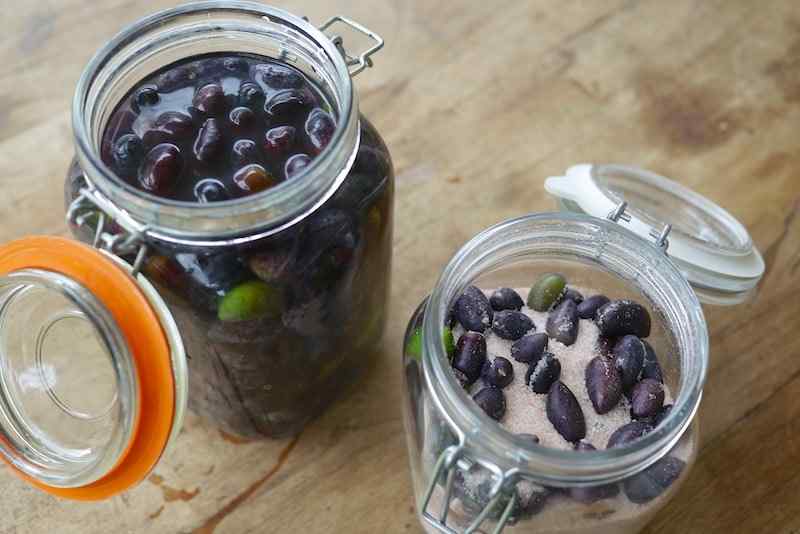
Did you know that canned or processed olives can stay fresh for up to 2 years?
Now, you might wonder how it is possible, as fruits often go bad in a few days or weeks.
The answer lies in preservation!
Manufacturers often preserve olives to keep them fresh for a long time. And guess which ingredient they use for preserving olives?
Salt
But why?
Well, salt has been used for centuries as a preservative due to its ability to remove moisture from foods. It also helps to stop the growth of harmful bacteria.
You can preserve olives by soaking them in brine or dry salt. This preservation method helps to extend the shelf life of olives but makes them salty in the process.
2. Flavor enhancement
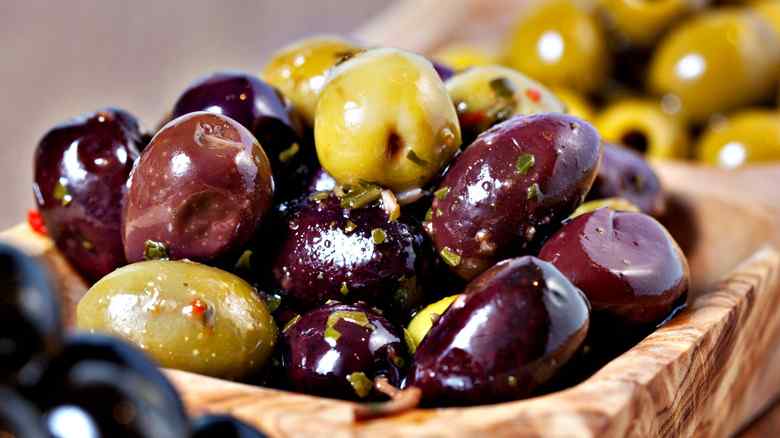
As we have discussed above, raw olives are bitter, and it is pretty obvious that you cannot eat them like that.
So, to make it a bit more flavorful, salt is used.
But why?
Well, it is a natural flavor enhancer that can bring out the taste of foods. When you add it to olives, salt will improve their natural flavors and make them more enjoyable to eat.
But then again, it will also make the olives taste salty.
1. Dehydration

Did you know why fruits rot? It is because of the moisture content. This is why dried fruits doesn’t need refrigeration and can last for a long time.
So, to increase the life span of olives, they are dehydrated. It is a process that removes moisture and improves flavor and texture.
They are dehydrated by drying them naturally in the sun or using an equipment. This dehydration process increases the saltiness of olives by reducing their water content and concentrating the salt present in them.
This is why dehydrated olives often have a stronger salty flavor compared to fresh or brined olives.
How to Make Olives Less Salty?
According to WebMD, one green olive contains 62.4 mg of sodium.
So, now you have an idea why people complain about the saltiness of this fruit.
While some people might like the salty taste, remember that it’s not good for your health.
The American Heart Association recommends that your daily salt consumption should be less than 2,300 mg.
But don’t worry, because here are a few hacks by which you can easily reduce the salt content in olives.
Rinse them with fresh water
This is one of the simplest ways to remove salt from olives. All you need to do is simply rinse them with fresh water. While it won’t remove all the salt, it will surely reduce the excessive saltiness.
Soak them in cold water

Another thing you can do is soak the olives in cold water. Take a jar and put all the olives inside it. Now, wash it with cold water and repeat the process two to three times.
Fill the jar again with cold water, close it with a lid, and put it inside the refrigerator. You need to repeat this process for two to three days with an interval of 10 to 12 hours.
While it is time-consuming compared to the first method, the result is better.
Mix with other ingredients
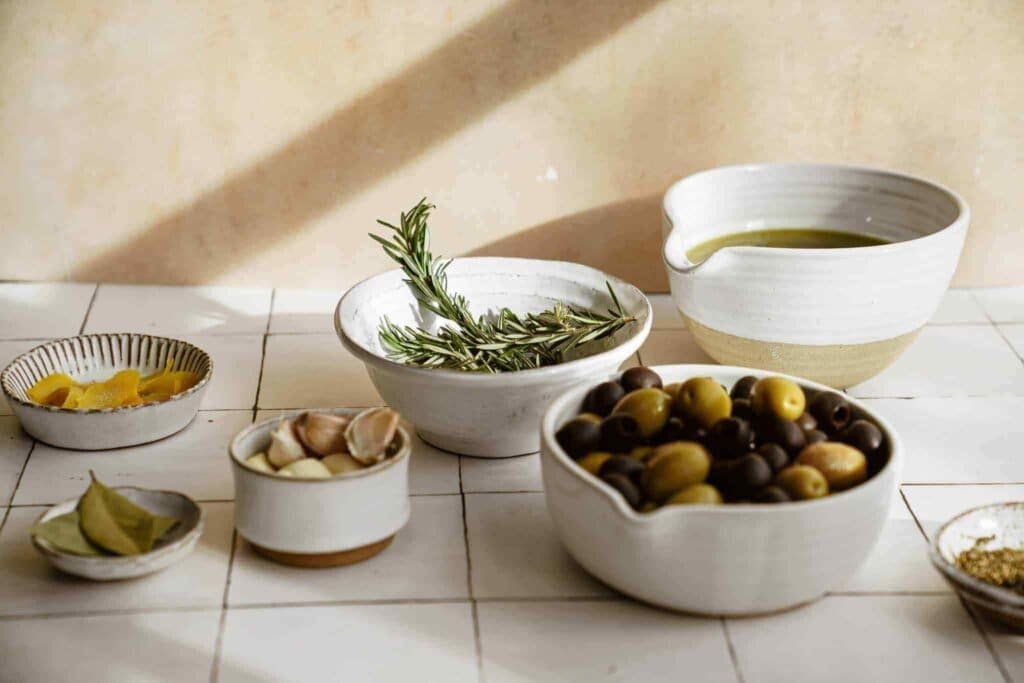
In this method, after washing the olives, you have to mix them with other ingredients to neutralize the saltiness.
Pour olives into a bowl and make a small cut on each of them using a knife. Now, you need to put it in a jar and add olive oil along with oregano. Mix them well and store the jar in the refrigerator.
Note:
Washing olives can make the fruit less flavorful. So, it is best to mix them with other ingredients. This way, you can reduce the saltiness as well as maintain the natural taste.
If you don’t have time for all this, simply look for olives labeled as low-sodium when buying them from the store. These varieties have less salt added during the curing process.

